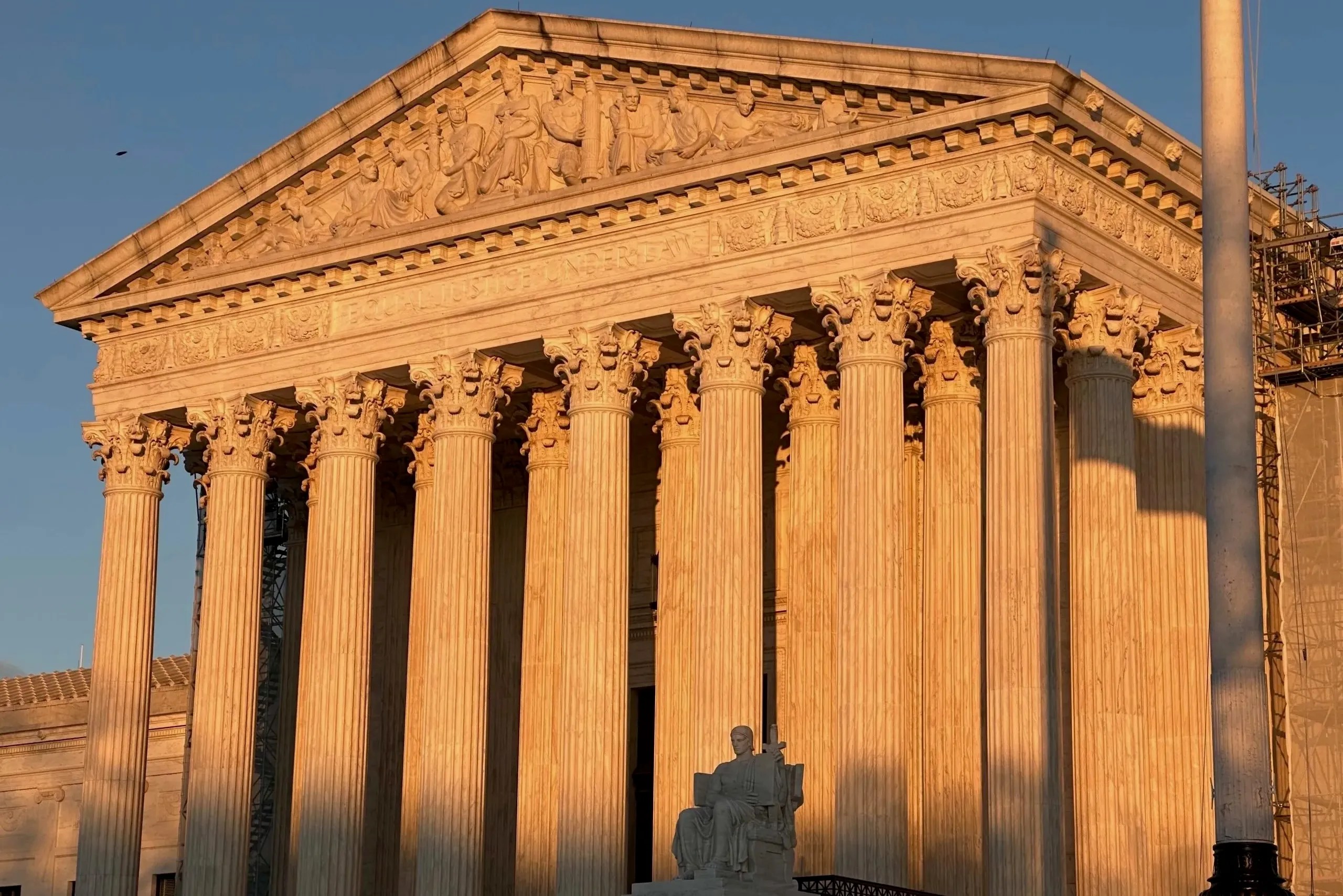
Friday, June 26, is the Supreme Court’s final day of issuing opinions on the merits docket for the 2024-25 term. The court has six cases left to decide, on topics ranging from the constitutionality of Louisiana’s congressional map to the power of federal district judges to issue nationwide injunctions.
Here are brief summaries of the six remaining cases, along with (when possible) predictions about which justice might be writing which opinion.
Free Speech Coalition v. Paxton (argued Jan. 15): This case stems from a challenge by a trade group for the adult entertainment industry to a 2023 Texas law that requires pornography sites to verify the age of their users before providing access. The law applies to any website whose content is one-third or more “harmful to minors.” The question that the justices agreed to decide was whether the U.S. Court of Appeals for the 5th Circuit properly applied a less stringent constitutional test, known as rational basis review, when reviewing the law, or whether it should have instead applied a more stringent standard, known as strict scrutiny.
The justices try to spread out the workload evenly over the course of the term but also on a month-to-month basis. The only justice who has not yet written an opinion for the court’s January argument session is Justice Clarence Thomas, which strongly suggests that he is writing in Free Speech Coalition (which, based on his questions at oral argument, should bode well for Texas).
Louisiana v. Callais (argued March 24): This is a dispute over a congressional map that the Louisiana Legislature adopted last year. After a federal court ruled, in a separate lawsuit, that a 2022 map containing one majority-Black district likely violated the Voting Rights Act, the Legislature enacted a new map, which contained two majority-Black districts. A group of voters describing themselves as “non-African American” challenged the 2024 map, contending that it was an unconstitutional racial gerrymander – that is, that it sorted voters based primarily on their race. Defending the new map, the state contended that race was not the motivating factor behind the new map. Instead, it argued, it drew the map as it did to protect several high-profile Republican incumbents, such as Speaker of the House Mike Johnson and Rep. Julia Letlow, who sits on the powerful House Appropriations Committee.
Federal Communications Commission v. Consumers’ Research (argued March 27): This case is a challenge to the federal “E-rate program,” which subsidizes telephone and high-speed internet services in schools, libraries, rural areas, and low-income communities in urban areas. Money for the subsidies comes from the Universal Service Fund, created by Congress and funded through contributions from telecommunications carriers; a private nonprofit created by the FCC, known as the Universal Service Administrative Company, administers the fund. A consumer protection group that has (among other things) recently devoted itself to fighting “woke” corporations contends that the scheme violates the nondelegation doctrine – the idea that Congress cannot delegate its legislative powers to other entities.
There are two cases left from the court’s March argument session, and three justices have not yet written opinions: Justices Elena Kagan, Brett Kavanaugh, and Amy Coney Barrett.
Kennedy v. Braidwood Management (argued April 21): This case is a challenge to the constitutionality of the structure of the U.S. Preventive Services Task Force, an independent panel of experts with the power under the Affordable Care Act to determine which preventive services insurers must cover. The plaintiffs in the case, who have religious objections to the requirement that insurers provide coverage for a drug that prevents HIV, contend that the Constitution requires members of the task force to be appointed by the president and confirmed by the Senate.
Mahmoud v. Taylor (argued April 22): In this case, the justices are deciding whether it violates the religious beliefs and therefore the First Amendment rights of a group of Maryland parents to require their children to participate in instruction at their public schools that includes LGBTQ+ themes. The parents, who are Muslim, Catholic, and Ukrainian Orthodox, want to be able to opt their children out of instruction involving LGBTQ-themed storybooks.
Only three justices – Samuel Alito, Ketanji Brown Jackson and Kagan – have not yet written opinions for April. The most likely scenario has Alito writing Mahmoud and either Kagan (more likely) or Jackson writing Braidwood.
Trump v. CASA (argued May 15): Although these cases began as a challenge to President Donald Trump’s executive order ending birthright citizenship – the guarantee of citizenship to virtually everyone born in the United States – they came to the justices as an emergency appeal in which the Trump administration is asking the justices to weigh in on a different question: the power of federal district courts to issue “nationwide” or “universal” injunctions, which prohibit the federal government from implementing the birthright citizenship order anywhere in the country.
Because this is the only opinion expected from May (when the justices do not normally hear cases), all bets are theoretically off as to the author. But this seems like one that Chief Justice John Roberts is likely to take for himself – or it could come as an unsigned (or “per curiam,” meaning “for the court”) opinion
Posted in Featured, Merits Cases
Cases: Free Speech Coalition, Inc. v. Paxton, Louisiana v. Callais, Mahmoud v. Taylor, Kennedy v. Braidwood Management, Inc., Federal Communications Commission v. Consumers’ Research, Trump v. CASA, Inc.
Recommended Citation:
Amy Howe,
The cases that remain,
SCOTUSblog (Jun. 26, 2025, 7:47 PM),
https://www.scotusblog.com/2025/06/remaining-supreme-court-cases/
